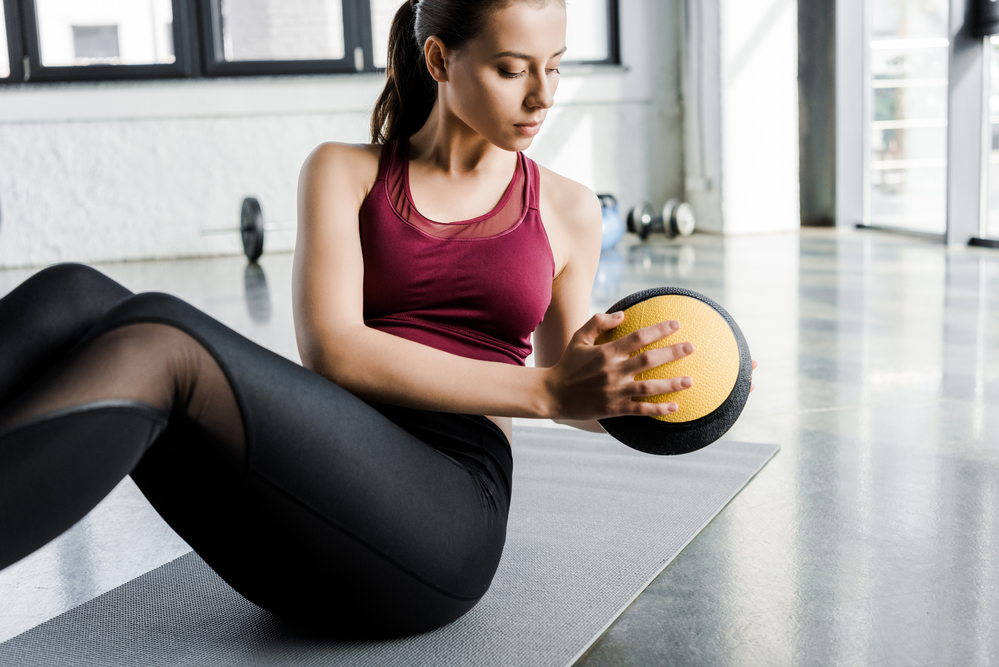As its name implies, sports medicine works with injuries that have been sustained from physical activity. However, its use isn’t limited to professional athletes. Our team at Mattalino Orthopaedic in Phoenix, AZ, has decades of experience when it comes to treating elbow, knee, and shoulder injuries. No matter your level of play, we’re here to provide the support your body needs so you can get back to doing what you love.
What Problems Are Treated With Sports Medicine?
1. Elbow Injuries
Overhand throwing is particularly hard on the elbow. When clients who play throwing sports repeat these high-stress motions regularly, it can lead to overuse injury. An overuse injury differs from an acute injury. Acute injuries usually happen due to some sort of collision, either with the ground or with another player. On the other hand, overuse injuries can creep up over time. This is one reason why elbow injuries are a common issue treated with sports medicine.
When a sports player repeats a motion over and over again, without giving the body enough time to heal between games or practices, overuse injuries can become very severe. Pitchers commonly suffer from these injuries, but it can be seen in anyone who consistently practices overhand throwing.
Common Elbow Injuries
Common elbow injuries can include, but aren’t limited to:
- Flexor Tendinitis
- Olecranon Stress Fracture
- Ulnar Collateral Ligament (UCL) Injury
- Ulnar Neuritis
- Valgus Extension Overload (VEO)
How We Treat Elbow Injuries
For elbow injuries, we primarily focus on treatments that are minimally invasive and restorative in nature. These treatments can include regenerative medicine injections or PRP therapy injections.
2. Shoulder Injuries
The list of shoulder injuries is vast. From separation and dislocation to arthritis, tendonitis, and a range of soft tissue injuries and tears, shoulder injuries can pop up at the worst times and be frustratingly slow to heal on their own.
The Relationship Between Sports and Shoulder Injuries
Although bone injuries in the shoulder can certainly happen, shoulder injuries most often involve muscles, tendons, and ligaments. As with elbow injuries, repetitive motions can be a key culprit for sports-related shoulder injuries, but hard impacts can do it as well.
Tennis
Those who play tennis have to put a lot of force into each swing, which can lead to a SLAP tear. This can make your shoulder feel weak and unstable, and you may feel pain when you swing your racquet overhead. This deep pain in your shoulder can also pair with a decrease in your range of motion.
Pitchers
Pitchers for either baseball or softball are also at a high risk of shoulder injury due to repetitive throwing.
Football and Volleyball
Football not only has repetitive throwing motions, but the impacts involved with football are hard on the body. Volleyball is similar in that chronic wear and lack of rest can lead to an overuse injury, whereas hitting the ground as you try to block the ball can lead to an acute injury.
Swimmers
Swimming is often touted as an exercise that is easy on the joints, but that isn’t always the case when it comes to competitive swimming. To really gain speed, you have to rotate your arms overhead and push against the force of the water. This extreme range of motion can also lead to a shoulder injury or displacement.
To summarize, the shoulder is very involved with many of the sports and physical activities we enjoy, including hobbies such as rock climbing. If you’re into any activity that puts your shoulder under chronic strain or puts you at risk for an acute injury, our team can work with you and provide you with tools and knowledge to keep your joints as healthy as possible.
How We Treat Shoulder Injuries
Our vast array of shoulder treatments include:
- Arthroscopic Bankart Repair
- Arthroscopic Rotator Cuff Repair
- Arthroscopic Shoulder Impingement Surgery
- Arthroscopic SLAP Repair
- PRP Injections
- Regenerative Medicine Injections
- Shoulder Arthroscopy
- Subacromial Injections
3. Knee Injuries
The knee is one of the body’s strongest, and largest joints. Unfortunately, its complex structure makes it prone to many different injuries, especially when it’s put under the pressure of performing in sports. Professional and hobby athletes of any age can suffer a knee injury, and our team is ready to help you address it.
Some sports carry more risk of knee injuries than others. These can include football, basketball, skiing, running, and lacrosse. This higher risk is simply due to the kind of movement these sports require. Twisting motions, pressure, or sudden turns and stops can all lead to injury.
How We Treat Knee Injuries
Our knee treatments include:
- Arthroscopic ACL Reconstruction
- Arthroscopic Chondroplasty
- Arthroscopic Microfracture Procedure
- Arthroscopic Partial Meniscectomy
- Continuous Passive Motion (CPM) Machine
- Knee Arthroscopic Loose Body Removal
- Meniscus Repair
- PRP Injections
- Regenerative Medicine Injections
- Viscosupplementation for Arthritis
A Closer Look at Some of the Treatments We Provide
Our team specializes in surgical procedures, as well as non-surgical treatments. When you come in for a sports medicine consultation, we’ll be able to look at your needs and let you know what treatment we recommend to get you back on track.
To help you better understand what to expect from your sports medicine treatment, we want to go more in-depth in explaining how some of our most common treatments work.
Arthroscopic Surgery
When you can’t avoid surgery, arthroscopic surgery allows us to use smaller incisions to make the whole process as minimally invasive as possible. First off, we’ll administer the arthroscope into a very small incision.
The arthroscope has a tiny camera at the end of it which will help our team diagnose the problem and correct it. It’s an excellent diagnostic tool, but it also serves as a way to perform minor surgeries through this smaller incision, instead of having to resort to more traditional surgery which may involve larger incisions.
CPM Machine
Surgery may be able to help correct your condition, but it’s crucial not to neglect the recovery period after surgery. Continuous Passive Motion, or CPM, is a physical therapy method that gently moves your joints to encourage healing and discourage the formation of scar tissue.
Regenerative Medicine Injections
Regenerative medicine is one of the non-surgical approaches we can use to help support your body and improve your overall health. The regenerative medicine treatments we offer include OrthoBiologics, viscosupplementation, and platelet-rich plasma therapy.
All of these treatments are administered with the help of either ultrasound needle guidance or C-Arm technology. These tools allow us to have extreme precision and accuracy, so we can inject the treatments in the most effective way possible.
OrthoBiologics
Many orthopedic injuries, such as muscle tears, used to be only corrected through surgery. Now that OrthoBiologics is an option it’s provided many patients with an alternative that doesn’t involve the same amount of recovery time or cost that surgery is known for. OrthoBiologics works by joining the body in its natural regenerative process and can help that process be quicker and more effective.
This treatment can come in multiple forms with the goal of helping the body overcome inflammation and restore better functionality. It can be used for chronic issues as well as acute injuries. In some cases where surgery can’t be avoided, OrthoBiologics can be combined with surgical treatment in an effort to help your body recover faster.
Viscosupplementation
Viscosupplementation is used to lubricate painful joints. It’s especially helpful for arthritis. The base we use is hyaluronic acid, which is found naturally in the body. When hyaluronic acid is introduced to the joint, it can help cushion the joints and decrease friction.
When friction is cut down, the inflammation usually goes down with it. Meanwhile, a better range of motion and improved comfort levels can help improve your quality of life.
Platelet-Rich Plasma
Platelet-rich plasma therapy is also known as PRP, and it uses the healing ability found in your own blood to help your body regenerate. It’s widely used and can help to relieve pain and speed up your healing process.
One of the best aspects of this treatment is it is completely derived from your own blood, so nothing artificial is being introduced into your body during treatment. At the same time, PRP pairs excellently with other treatments, so if we find that a combination of treatments is a good fit for your needs, PRP may help the other treatments you seek out be even more effective.
What To Expect From PRP Treatments
When it comes to PRP, each treatment involves a few steps. First off, we’ll take a couple of vials of your blood. The blood can be put into our centrifuge machine, which spins the samples at high speed until they are forced to separate into different layers. During this process, the plasma and platelets in the blood sample merge together, which creates the platelet-rich plasma we’ll be using for treatment.
We’ll draw up the PRP, and use our imaging technology to inject it into the injured area of your body, where it can immediately get to work. PRP triggers a response from the body, so the area it’s introduced to should react by developing new regenerative cells and tissues. The rich nutrients found in PRP can help feed and strengthen these new cells at the same time.
How Long Does PRP Take?
From the blood draw to the treatment, you can expect to spend about an hour with us for your PRP therapy. Most of this time is due to the fact that we have to make the PRP from scratch each time; the injection itself should only take about 10 minutes. There’s no downtime associated with it, so after we’re done you can get back to whatever you had planned for the rest of your day.
Are You a Good Candidate?
PRP is especially helpful when it comes to deep-muscle injuries. Due to a lack of blood flow, injuries affecting soft tissues can be slow to heal. PRP can shorten the healing process by delivering nutrients directly to the area that is most desperate for them.
When you come in for your consultation, we can go over any questions you have about our treatment options and help you make an informed decision.
We Offer Treatments That Work Together With Your Body
We are proud to offer the latest technology when it comes to sports medicine. To learn more about the innovative ways we can support your body as it recovers from injury, contact our team at Mattalino Orthopaedic in Phoenix, AZ, today for your sports medicine consultation.


